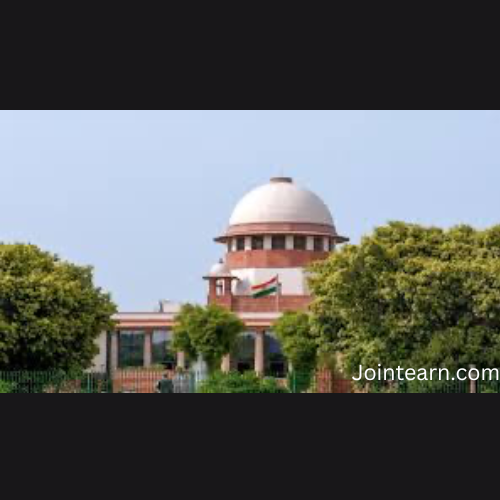
The Supreme Court of India has declined to quash a criminal case against law graduate Mohd Faiyyaz Mansuri, who faced legal action over a social media post in which he stated that the Babri Masjid would be rebuilt one day. The case, which has been under scrutiny since 2020, will now be considered by the trial court, after Mansuri’s counsel withdrew the petition during proceedings before the apex court.
A bench comprising Justices Surya Kant and Joymalya Bagchi heard the matter on Monday. During the proceedings, Advocate Talha Abdul Rehman, representing Mansuri, argued that the social media post in question did not contain any vulgarity and that Mansuri had only expressed the view that the Babri Masjid could be rebuilt, similar to the recent reconstruction of a mosque in Turkey. The counsel further contended that another individual had allegedly made inflammatory comments, but no action had been taken against that person.
Observing the arguments, Justice Surya Kant cautioned the counsel, stating, “Don’t invite any harsh comment from us,” signaling the bench’s reluctance to interfere with the ongoing criminal proceedings. In response to the court’s stance, Mansuri’s counsel opted to withdraw the petition. The bench allowed the withdrawal, formally dismissing the Special Leave Petition. In its order, the court noted that “all the defence plea that may be raised by the petitioner shall be considered by the trial court as per their own merit.”
The legal proceedings against Mansuri trace back to August 2020 when a criminal case was lodged after he made the social media post. The post included remarks by another individual that allegedly disparaged Hindu deities, prompting the district magistrate of Lakhimpur Kheri to issue a detention order against Mansuri. The detention was later set aside by the Allahabad High Court, allowing him to remain free while the legal process continued.
Subsequently, the trial court took cognisance of the charge sheet filed against Mansuri earlier this year, after which he approached the Allahabad High Court seeking to quash the criminal proceedings. The high court, however, refused to grant relief, leading Mansuri to file a Special Leave Petition in the Supreme Court. With the petition now withdrawn, the matter will continue at the trial court level, where Mansuri will have the opportunity to present his defense.
The case highlights the continuing legal and social sensitivities surrounding the Babri Masjid issue, which has been a flashpoint in Indian history since the demolition of the mosque in 1992. Mansuri’s post and the resulting legal proceedings underscore the fine line between expressing personal opinions and actions that can trigger criminal liability under Indian law.
The Supreme Court’s decision to allow the trial court to adjudicate the matter emphasizes the principle that lower courts are empowered to examine the merits of criminal charges and defenses, rather than having higher courts intervene prematurely. Legal observers note that the withdrawal of the petition by Mansuri’s counsel was a tactical decision in response to the court’s cautionary remarks, enabling the trial court to consider the substance of his defense in accordance with due process.
As the trial court takes up the case, Mansuri’s legal team is expected to argue that his post was an expression of personal opinion rather than an act intended to provoke communal tension. The proceedings will likely involve evaluating the content of the social media post, the context in which it was made, and any evidence regarding its impact or potential to incite unrest.
This development also serves as a reminder of the evolving nature of social media regulation in India, where statements on online platforms can result in criminal scrutiny, particularly when they relate to religious sentiments or communal issues. Experts note that such cases often test the balance between freedom of speech under Article 19 of the Constitution and laws enacted to prevent hate speech or incitement of communal violence.
Mansuri’s case, therefore, will not only determine his individual liability but may also contribute to broader discussions on how courts interpret and adjudicate matters involving social media, religion, and freedom of expression. As the trial court proceeds, both the prosecution and the defense will have the opportunity to present evidence and legal arguments, including expert opinions, witness testimonies, and digital forensic data, to establish or contest culpability.
In conclusion, while the Supreme Court’s dismissal of the Special Leave Petition effectively ends Mansuri’s recourse at the apex level for the time being, it ensures that his defense will be heard in full at the trial court. The case continues to be a focal point for debates surrounding online speech, religious sensitivity, and the proper scope of criminal liability in India, underscoring the complex interplay between law, social media, and communal harmony in contemporary society.


Leave a Reply